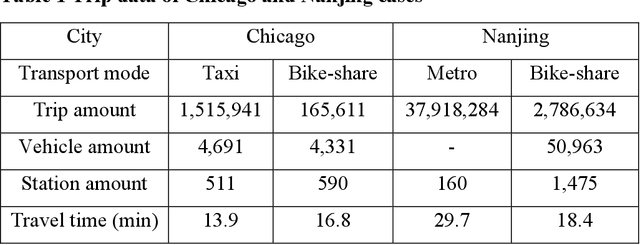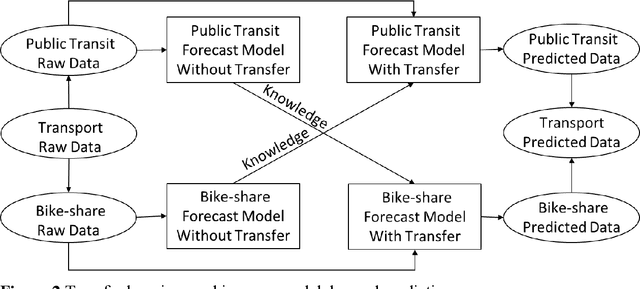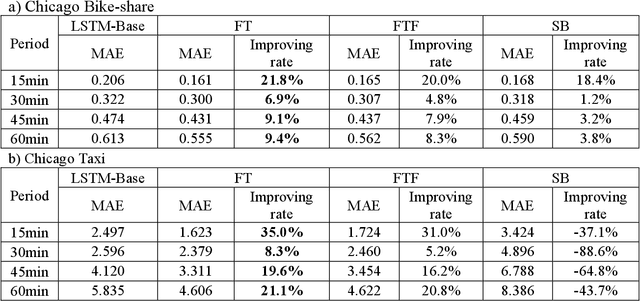Xuewu Chen
Transfer learning for cross-modal demand prediction of bike-share and public transit
Mar 17, 2022



Abstract:The urban transportation system is a combination of multiple transport modes, and the interdependencies across those modes exist. This means that the travel demand across different travel modes could be correlated as one mode may receive demand from or create demand for another mode, not to mention natural correlations between different demand time series due to general demand flow patterns across the network. It is expectable that cross-modal ripple effects become more prevalent, with Mobility as a Service. Therefore, by propagating demand data across modes, a better demand prediction could be obtained. To this end, this study explores various machine learning models and transfer learning strategies for cross-modal demand prediction. The trip data of bike-share, metro, and taxi are processed as the station-level passenger flows, and then the proposed prediction method is tested in the large-scale case studies of Nanjing and Chicago. The results suggest that prediction models with transfer learning perform better than unimodal prediction models. Furthermore, stacked Long Short-Term Memory model performs particularly well in cross-modal demand prediction. These results verify our combined method's forecasting improvement over existing benchmarks and demonstrate the good transferability for cross-modal demand prediction in multiple cities.
 Add to Chrome
Add to Chrome Add to Firefox
Add to Firefox Add to Edge
Add to Edge